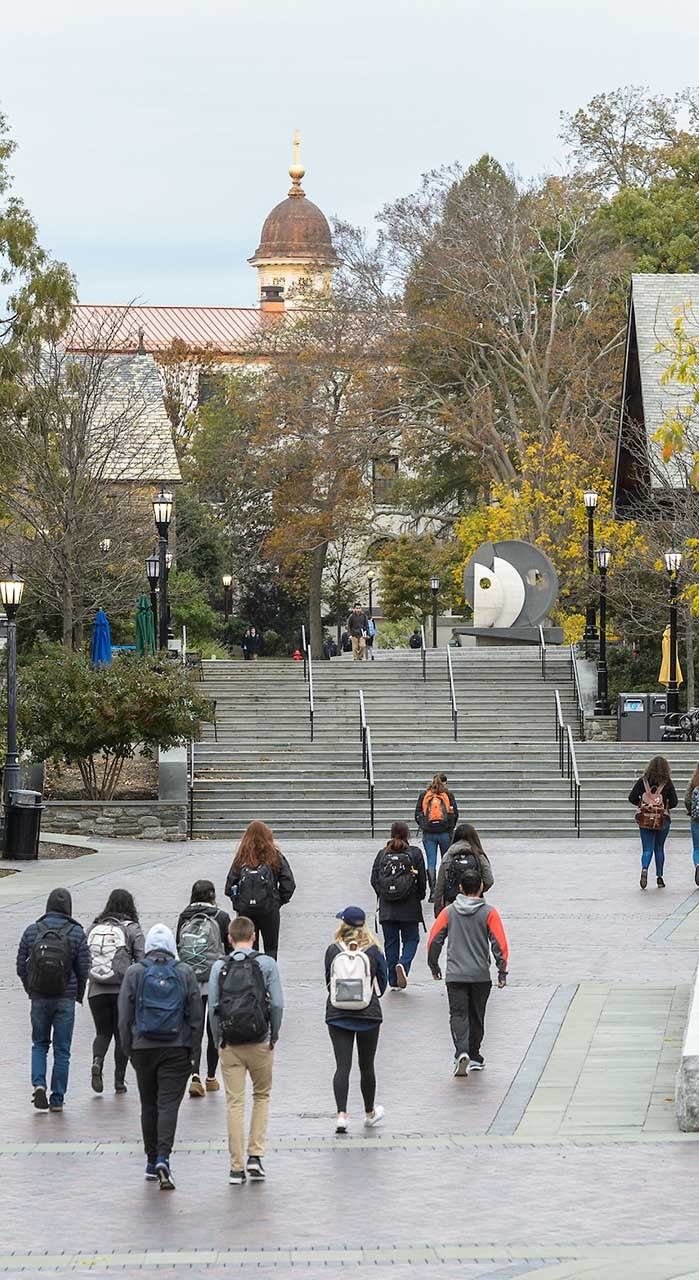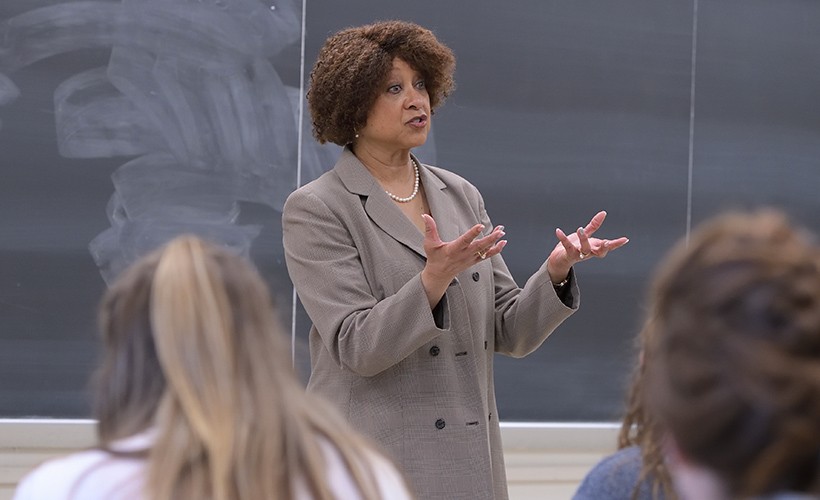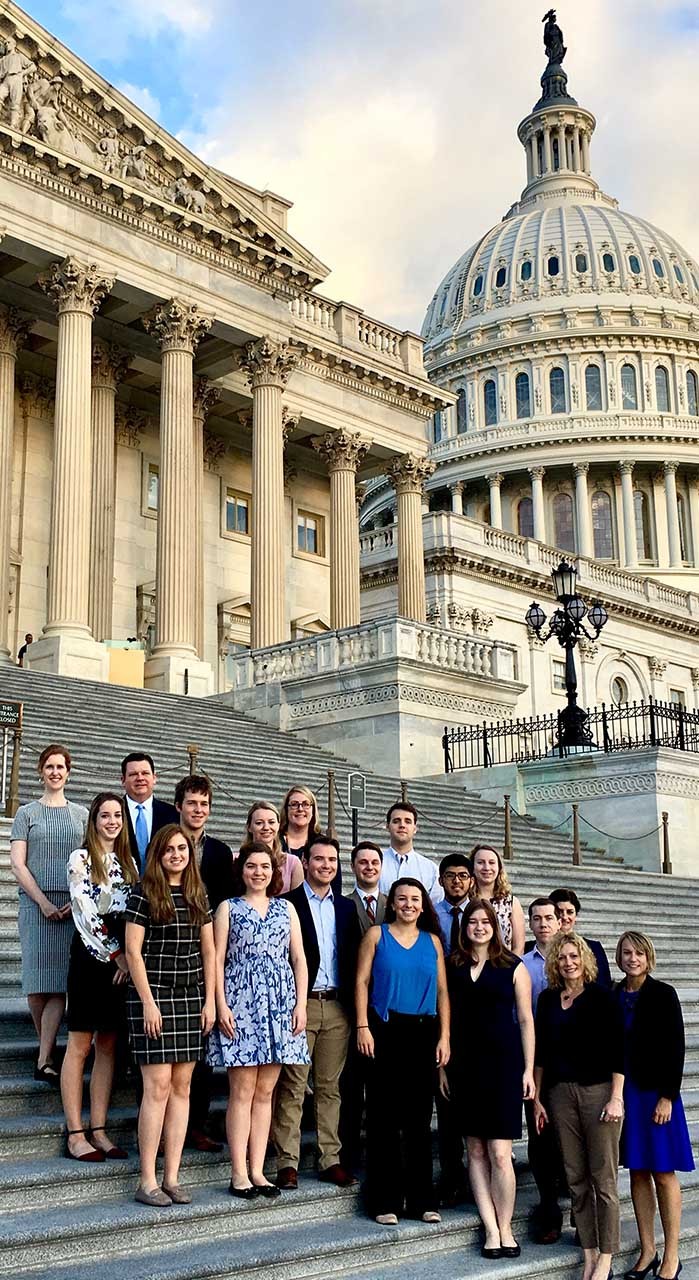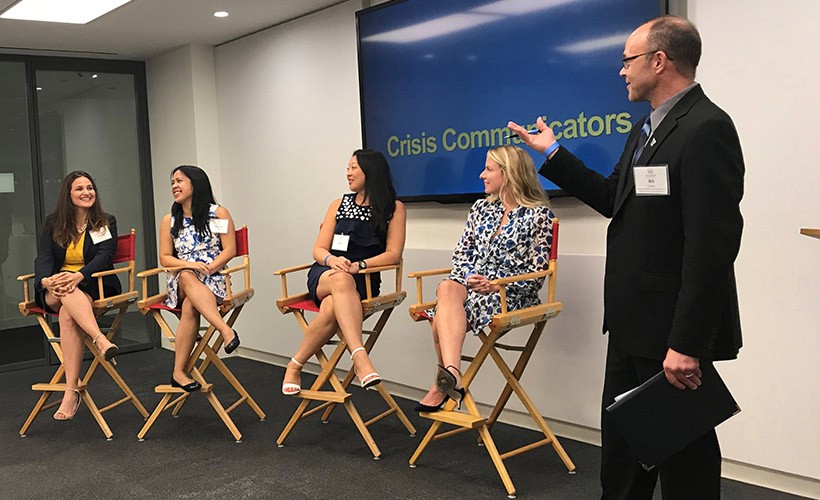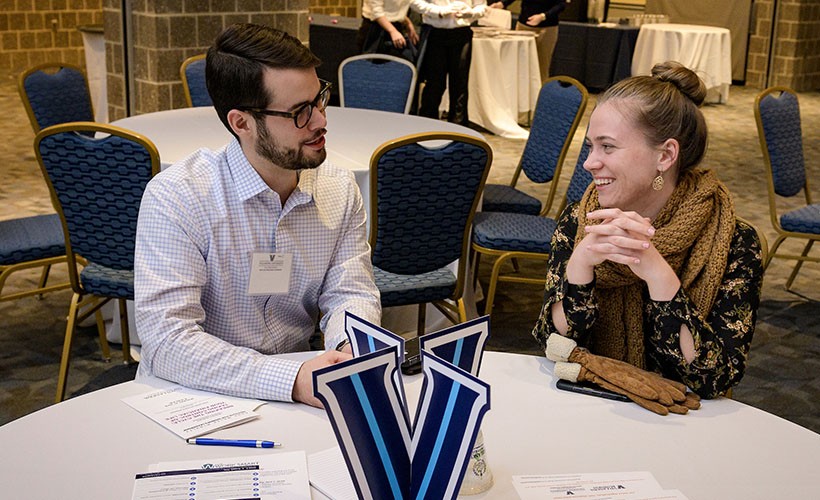Student Testimonials: Meg Carter ('19)
We sat down to chat with Meg Carter, who graduated with majors in English and Spanish, about her time as a Spanish student.
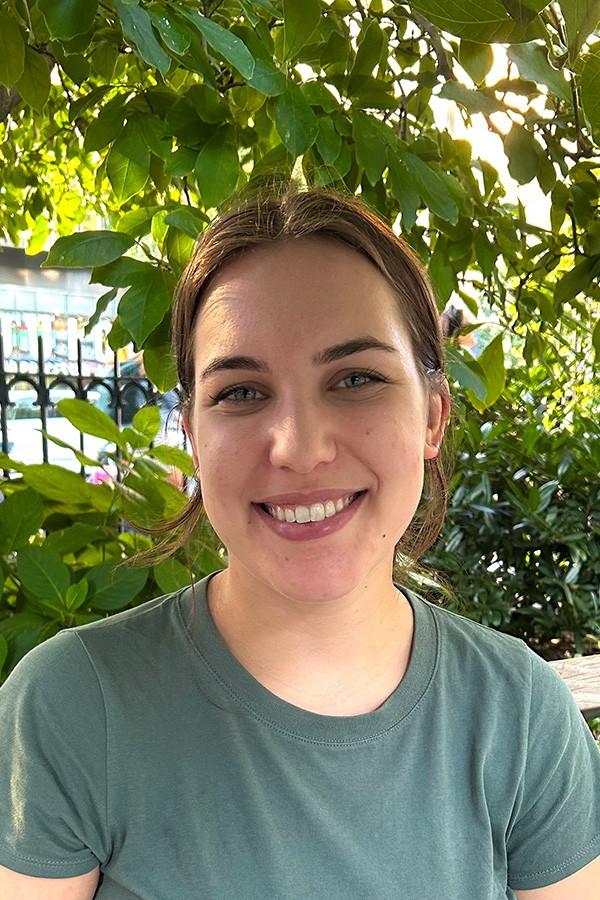
Meg Carter was a 2019-2020 Fulbright English Teaching Assistantship to Spain. She's now pursuing a graduate degree in Creative Writing.
What were you involved in as a Villanova student?
When I was at Villanova, I chose extracurriculars that gave me space to experiment, be creative, and have fun. I did a lot of musical theater (VSMT) and was also a part of Villanova Television’s Entertainment Committee, where I helped write and film sketches for our group's YouTube channel. My senior year, I co-founded an improv group called Ridiculum that I think is still around.
You graduated in 2019. Where did you go after that?
After Villanova, I did a Fulbright ETA in Spain. It was incredible! I majored in both English and Spanish, so being an English Teaching Assistant in Spain was a perfect combination of both of those areas.
That's great! What made you interested in applying to Spain?
I had studied abroad in Cádiz, and I was really interested in Spain’s history and culture. I applied for a Fulbright to Spain and applied to be in a different region than Andalucía (where I studied abroad) so that I could learn more about the cultural and linguistic diversity in the country.
What did you do after completing your Fulbright?
After the Fulbright, I came back home and tutored in English and Spanish while looking for a full-time job. I like being around institutions of learning, and I'm passionate about education, so I started applying for jobs in higher education.
I accepted a position as a Faculty Affairs Specialist at Stanford's medical school. I help coordinate the process of hiring and promoting faculty or staff in the medical school. I like the job because it requires a lot of writing, editing, and reviewing materials. I'm now working remotely while I attend graduate school at Columbia. I’m pursuing a Master of Fine Arts in Creative Writing with a concentration in poetry.
What was it like doing majors in two humanities fields at the same time?
It was a lot of reading and writing, which I enjoyed. The majors paired very well; it often seemed like they were in conversation with one another. When I learned about a particular literary theory in an English course, I could apply that in a Spanish literature course. I took a class on modernism in English and ended up taking a Spanish class on modernism too. I think that taking classes in both languages broadened my understanding of literary movements more globally rather than in an Anglocentric sphere.
Did you ever read any material in your English classes that was directly related to Spain or Hispanic culture and literature?
We read a few translated short stories by Julio Cortázar in my English classes, but fortunately there was very little overlap in terms of the texts themselves.
How difficult was it for you to complete both of those majors in the same timespan at Villanova?
Studying abroad the second semester of my junior year was really helpful for completing my Spanish major. It made it a lot easier to meet all the requirements for the Spanish major. I declared both majors the second semester of my sophomore year, which is pretty late. Even having done that, I found that it was fairly easy to juggle both majors. I do have to say, though, that senior year it was all courses in Spanish or English and not a lot of electives. I didn't have a ton of wiggle room.
Did you originally start off as an English major?
I was totally undeclared and didn't really know what I was going to do. I was thinking about something like Psychology or another social science. I had a lot of ideas and wasn't set on one path.
I think I gravitated toward studying English because I really enjoyed the required English courses I had to take. I liked the kinds of discourse that happened in English and Spanish courses, and the faculty were also very passionate, so that made me excited about studying those topics.
What made you want to declare a Spanish major as opposed to a minor?
I grew up in the Bay Area, where there are a lot of Spanish speakers. I've always had a curiosity for the language, and I've always admired how it sounds. Once I started taking more courses at Villanova, I realized I really enjoyed literature courses. I had a desire to start taking them in Spanish as well as English to expand my knowledge of literary movements.
I also wanted to maximize my learning to make sure I was really developing my speaking, writing, and comprehension skills, so I felt like I needed to do a major instead of a minor. I started Spanish in Intermediate I, which is lower than most students test into, but I was still able to major!
Did you have a favorite assignment or subject you learned about as a Spanish student?
We studied a collection of poems by Rafael Alberti (Marinero en tierra), which I loved. The poems are about the poet’s nostalgia for the ocean and his hometown. The poems are concise but also dramatic and intense. The collection is very potent. Since graduating, I've bought several collections of Alberti’s poetry because I really enjoyed studying his work at Villanova.
Also, for my senior capstone, I did a creative piece. I wrote an additional chapter of the book we were reading: Crónica de una muerte anunciada by Gabriel García Márquez. It was a great way to put my Spanish into practice.
What would you like to have seen in the Spanish program?
I really wanted to make a strong connection with the people in my class, but I didn't get as much of a chance to do that as I would have liked. I would have enjoyed it if the Department hosted more activities outside of class.
How do you feel about the skills you gained as a Spanish student?
The skills I gained in Spanish are skills that I'll use for the rest of my career.
Any advice for new students of Spanish?
Be intentional about the courses you take; find courses that align with your interests. Take advantage of office hours if you feel like you're falling behind.
Also, go for the major! Being exposed to stories from so many distinct literary traditions really broadened my understanding of the world. Plus, if you're looking to develop proficiency in Spanish, a major is the way to go. If I had just done a minor, I don't think it would have been enough for me to feel like I had really developed advanced proficiency in Spanish.

